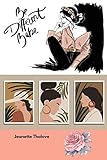Organic Cotton [electronic resource] : Is it a Sustainable Solution? / edited by Miguel Angel Gardetti, Subramanian Senthilkannan Muthu.
Contributor(s): Gardetti, Miguel Angel [editor.] | Muthu, Subramanian Senthilkannan [editor.]
| Muthu, Subramanian Senthilkannan [editor.] | SpringerLink (Online service)
| SpringerLink (Online service) .
.
Material type:  BookSeries: Textile Science and Clothing Technology: Publisher: Singapore : Springer Nature Singapore : Imprint: Springer, 2019Edition: 1st ed. 2019.Description: X, 176 p. 33 illus., 28 illus. in color. online resource.Content type: text Media type: computer Carrier type: online resourceISBN: 9789811087820.Subject(s): Manufactures
BookSeries: Textile Science and Clothing Technology: Publisher: Singapore : Springer Nature Singapore : Imprint: Springer, 2019Edition: 1st ed. 2019.Description: X, 176 p. 33 illus., 28 illus. in color. online resource.Content type: text Media type: computer Carrier type: online resourceISBN: 9789811087820.Subject(s): ManufacturesOrganic cotton and certifications -- Organic cotton and poverty -- Organic cotton and fair trade -- Organic cotton and environmental impacts -- Organic Cotton vs Recycled Cotton vs Sustainable Cotton -- Organic cotton and affordability -- Organic cotton: chemical free? -- Organic cotton and soil -- Organic cotton and greenwashing -- Organic cotton and developing countries.
This book highlights the traditional boundaries of the textile industry and discusses to what extent organic cotton is sustainable. It also examines the domestic and international influences of agricultural practices on cotton. Sustainability issues in the textile and fashion sectors require the influences that arise from beyond the boundaries of the conventional textile industry to be taken into account. These “external” influences—from (international or domestic) agricultural practices and energy policies to consumption patterns and levels of ecological notions of the society—have a significant impact on the sustainability of the textile and fashion sectors as a whole. Ecological and social concerns go far beyond individual companies and industries; therefore, in order to become more sustainable, the textile (and fashion) industry needs to address these concerns appropriately and connect with other disciplines, industries, communities, and international groups.


There are no comments for this item.